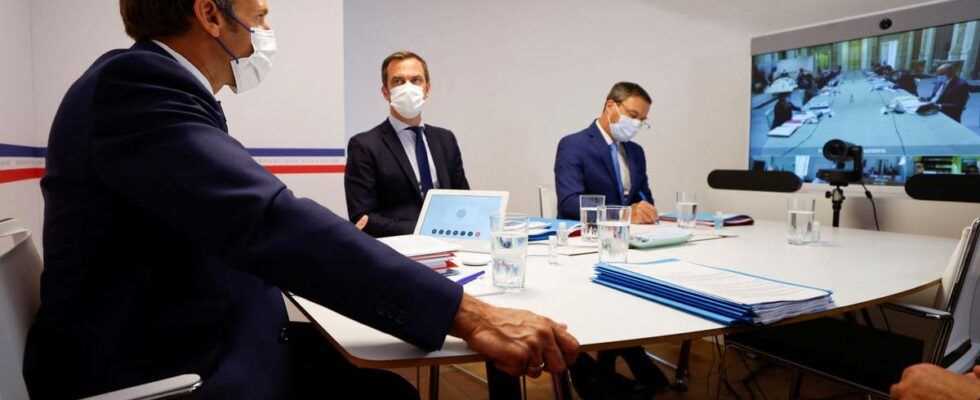The executive is mobilizing to hasten the transformation of the health pass into a vaccine pass, but also to “reassess” from now on the situation created by the meteoric rise of the new variant.
No truce for confectioners in the face of Omicron’s offensive: the executive is mobilizing this Monday, December 27 to hasten the transformation of the health pass into a vaccination pass, but also to “reassess” from now on the situation created by the meteoric surge of new variant.
Saturday, for the first time since the start of the epidemic, the threshold of 100,000 new daily cases was crossed, after breaking previous records in the week. The figure fell to 27,697 new cases in 24 hours on Sunday, a level linked to the closure of a very large number of pharmacies and testing centers on Christmas Day.
The rise of this wave raises gloomy projections a few days before the transition to 2022. “The realistic scenario is that in mid-January we (either) have 200,000 contaminations a day”, estimated the infectious disease specialist Benjamin Davido on Friday.
President Emmanuel Macron will hold by videoconference a health defense council dedicated to Covid-19 at 4 p.m., one hour before the Council of Ministers which must adopt the bill establishing the vaccine pass.
Initially scheduled for entry into force at the end of January, this text will be examined in committee at the National Assembly from Wednesday, before going to the Senate from January 5. Its implementation is scheduled for January 15, according to the bill.
“Re-evaluation” of anti-Covid measures?
In detail, the text transforms the health pass into a vaccination pass “for access to leisure activities, restaurants and drinking establishments, fairs, seminars and trade shows or even interregional transport”, in particular rail. The only presentation of a negative test would, however, remain valid “for access to health and medico-social establishments and services”.
On the health situation, government spokesman Gabriel Attal had specified that a “reassessment” was scheduled for Monday, while Omicron will undoubtedly become the majority in France this week. Four days before the New Year, will the government announce stronger restrictions or will it go for the status quo? And what about the length of isolation for “contact cases”?
In Savoie, the prefect has already given an additional turn of the screw. A decree extends the measures in force since November 30, forcing people eleven years and over to wear a mask, including outdoors, in places with more than 10 people, such as markets, theaters, etc.
In a column in the Journal du dimanche, about fifty caregivers also ask the government to delay the start of the January 3 school year, “at high risk given its proximity to the New Year’s festivities, with recourse to distance education until return to health indicator thresholds defined publicly. “
If the Covid-19 contamination figures follow a string of records, 22 million French people have already received a booster dose, or more than half of the 40 million eligible.
The executive’s calls “for caution” before the holidays were also heard. Several million people were tested in anticipation of Christmas Eve, causing saturation on Friday, December 24 on the SI-DEP platform, where the results of the tests are published.
Booster dose from 4 months
However, pressure continues to mount on hospitals with 16,365 people currently hospitalized, or 506 new admissions in 24 hours. Faced with the emergency, the High Authority for Health (HAS) recommended Friday that the booster dose can be performed from three months for the eligible population.
For its part, the Ministry of Health announced that the deadline would be reduced to 4 months from now – until then it was 5 months after the last injection – and not from January 3 as envisaged.
In its opinion, the HAS also recommended the administration as of now of a booster dose in 12-17 year olds suffering from immunodeficiency or a serious risk comorbidity. All this to avoid as much as possible a surge on hospitals in January, but also work stoppages which could cause the “possible disorganization of a certain number of essential services”, fears the Scientific Council.
As of this Christmas weekend, nearly 8,000 have been canceled by airlines around the world, while thousands more are delayed, due to the isolation of many airline and airport personnel.
